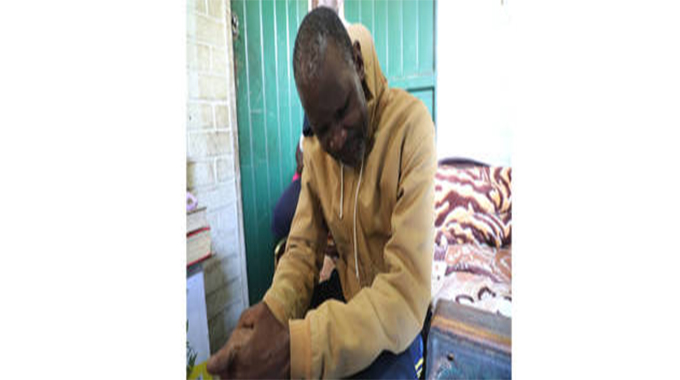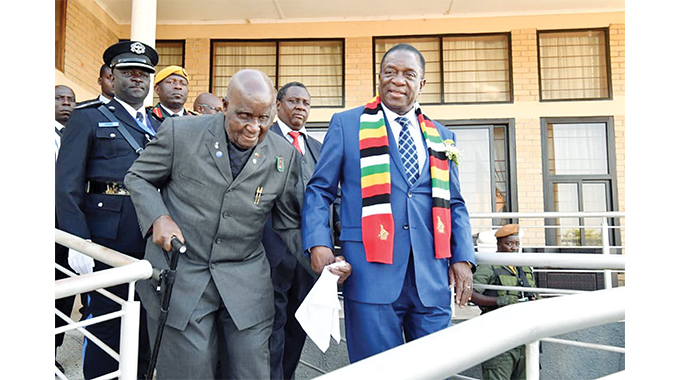COMMENT: Demise of ‘Striker’ should not spell doom for boxing in the province

THE death of legendary boxing trainer Philip ‘‘Striker’’ Ndlovu at the age of 66 yesterday has left a huge void in local boxing circles, particularly in Bulawayo.
Ndlovu succumbed to prostate cancer that he was first diagnosed in January last year.
The soft-spoken trainer was a popular figure in Makokoba and was often praised for teaching “ghetto” youths discipline, anger management and teamwork at Tshaka Youth Centre in Bulawayo’s oldest suburb as a resident volunteer coach.
He had so much empathy and sympathy for unprivileged young people and hence spent his entire adult life tapping boxing talent from his hood, training and giving them hope that poverty potentially breeds success.
Ndlovu didn’t just train young people boxing to only help combat social ills, but also armed them with the ambition to escape from their economic and social conditions.
He did all this out of goodwill because he believed in helping young people turn around their seemingly hopeless situations by dumping idleness and shunning life on the streets.
Ndlovu’s life revolved around the Tshaka Youth Centre where he arrived at 5AM every day of the week to prepare for training sessions.
When he wasn’t at the gym, Ndlovu was involved in a variety of community programmes, but he literally lived for boxing, which he loved until his last breath yesterday morning.
He declared from the beginning that he wasn’t into boxing to make money, but to make boxers great, and he certainly lived up to his declaration as witnessed by his living conditions in a cramped one room at Ejingeni Flat.
He truly dedicated his life to boxing and it’s no wonder he established himself as a respected trainer throughout the country.
In his prime, Ndlovu trained a number of top Bulawayo boxers, who include former World Boxing Association pan-African heavyweight champion Thamsanqa Dube and ex-World Boxing Federation Africa heavyweight title holder Elvis ‘‘Bulawayo Bomber’’ Moyo. He also trained former champions Jabulani Gombiro, Nokuthula Tshabangu, Ambrose Mlilo, Sipho Moyo, Fredrick Chisoro and Modercai Donga.
Multi-National Youth Games medalists Meluleki Ngulube and Ntando Sibanda also passed through Ndlovu’s hands, while Noel Mpofu and Martin Tshuma turned professional under his mentorship in the past decade.
Amateur boxing was thriving in Bulawayo more than any other provinces, thanks to Ndlovu’s passion, and the question is who will carry the torch now that the torch-bearer is no more.
Will another trainer similar to Ndlovu emerge from the ashes of his lifelong dedication or his demise spells doom for boxing in the province?
He trained beginners, amateurs and professionals for free, and moved around Bulawayo’s boxing gyms in Sizinda, Lobengula, Nkulumane, Nketa, Iminyela, Prisons and HQ 1 Brigade scouting for talent and helping with coaching lessons.
At the same time, Ndlovu served the Bulawayo Amateur Boxing Association as organising secretary and committee member, and took an active role in approaching businesses in Bulawayo to support boxing.
Besides boxing being a great hook for change and giving young people a place to hang out and develop themselves by diverting those who might otherwise get involved in delinquency and other anti-social behaviours, it needs funding to harness its full potential in punching for the good of society.
Ndlovu tried his best, pushed by his passionate love for boxing, to make it live on without the widespread popularity and appeal it enjoyed in the 1980s and 1990s when the country churned out continental and Commonwealth champions.
Presently the state of amateur and professional boxing inspires no confidence and has been reduced to a sad imitation of a bygone era.
Sadly, boxing has been pushed into the shadows and left to fend for itself since the turn of the millennium in spite of its rich history.
Corporate sponsorship and audiences have moved in another direction in search of returns in investment and entertainment respectively.
The decline of local boxing is the boxing association administration’s own fault and it’s important that other individuals with similar characteristics to Ndlovu emerge sooner rather than later to secure the future of the sport.
Ndlovu tried to keep boxing alive and unless a realistic restoration project is drawn up, talented young men and women will simply choose to pursue the increasing popular mixed martial art Ultimate Fighting Championship (UFC), which has lured most boxers that want to make a quick buck.











Comments